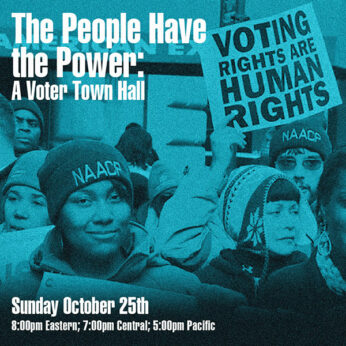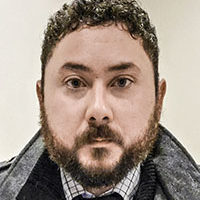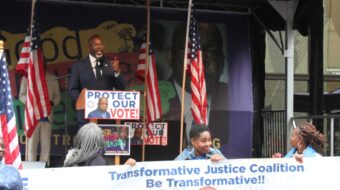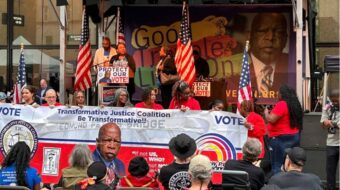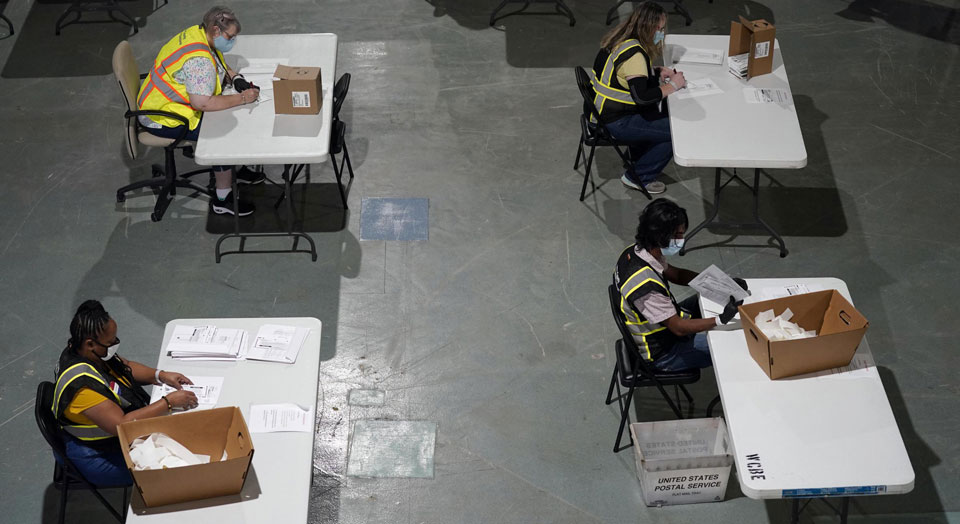
In the crucial 2020 presidential election swing state of North Carolina, where former Vice President Joe Biden has a razor-thin 2.5 point lead over Donald Trump in the latest polls (48.5 to 45.8), a mixed ruling in a trio of mail-in ballot requirement lawsuits gave a partial win to voting rights advocates.
Judge William Osteen issued a 91-page injunction on Oct. 14 ordering state officials to revise an earlier directive allowing voters to fix a missing witness signature on their ballot by simply returning a signed affidavit, without starting a new ballot, and having it witnessed again. He did say, however, that he would allow that type of fix for small errors such as incomplete witness addresses or signatures in the wrong place.
His split decision was effectively a non-partisan ruling. He allowed minor ballot errors to be easily corrected, relieving concerns voting rights advocates had of restrictive rules during a pandemic, but still maintained witness signatures as a requirement for all mailed ballots—a position seen by many as lending aid to GOP efforts to suppress the vote by pushing for stricter voting measures. He also declined to alter an extended deadline for county boards to accept absentee ballots after Election Day as long as they are postmarked by Nov. 3.
“Today was a win for our clients and for all North Carolina voters who need to correct a problematic mail-in ballot,” said Allison Riggs, interim executive director of the Southern Coalition for Social Justice, and attorney of record on one of the three lawsuits.
In his ruling, Osteen bemoaned that the State Board of Elections’ late September rule change would have let individuals cast ballots without having a witness at all. That created conflict with a ruling issued in August upholding the overall witness requirement in state law but requiring that voters be given due process to fix, or cure minor ballot errors.
“This court upheld the witness requirement—to claim a cure which eliminates that witness requirement is ‘consistent with’ this court’s order is a gross mischaracterization,” he wrote.
People’s World Election Town Hall – Oct. 25th – Register here.
As of Oct. 3, mail-in ballots with incomplete witness information and other errors have been in limbo, with counties under orders to take no further action on such issues pending court rulings. Nearly 506,000 absentee ballots have been accepted, with another 13,000 set aside for several flaws.
“This court believes the unequal treatment of voters and the resulting Equal Protection violations as found herein should be enjoined,” wrote Osteen in his conclusion. “Nevertheless, under Purcell and recent Supreme Court orders relating to Purcell, this court is of the opinion that it is required to find that injunctive relief should be denied at this late date, even in the face of what appear to be clear violations.
The Purcell principle cited by Osteen states that courts should not change election rules during the period of time just before an election because doing so could confuse voters and create problems for officials.
The principle originated in the case of Purcell v Gonzalez, in which the U.S. Supreme Court reversed an October 2006 9th Circuit appellate court ruling blocking an Arizona voter ID law during that year’s midterm elections.
In the case of North Carolina, however, a higher court could make this partial victory moot. The state Elections Board had already asked the 4th Circuit Court of Appeals to intercede at an earlier stage of the case. And state Republican leaders, along with the Trump re-election campaign, and national GOP, have made it clear they will take the fight to the U.S. Supreme Court if need be.
In their duo of lawsuits, state and the national GOP representatives, including the Trump campaign, argued the late changes made by the State Board of Elections would “usurp legislators’ power to set election rules that are enshrined in the U.S. Constitution.” They also argued easier, more lenient ways of fixing witness signature issues would dilute the votes of those who followed the original, stricter instructions.
The GOP lawsuits had also sought to undo other rule changes, including one allowing county boards nine days—instead of three—to accept ballots that arrive after Election Day.
On Thursday, Oct. 15, the Trump campaign announced it would ask a federal appeals court to force North Carolina to revert to stricter absentee ballot rules.
The plaintiffs, which include the state and national GOP, said in court documents that they will file an emergency appeal asking the 4th Circuit Court of Appeals to intervene following Osteen’s mixed ruling.
Other court decisions impacting voters:
- The U.S. 9th Circuit Court of Appeals rejected an effort Friday, Oct. 16, by Six Navajo Nations to give an extra 10 days after Election Day to count mail-in ballots from Navajo Nation Members living on the Arizona portion of the tribe’s reservation.
They argued mail service is much slower and less accessible than other parts of the state, and also that Arizona’s requirement that mail ballots be received by 7 p.m. on election night would disenfranchise tribal members.
“Although we do not discourage challenges to voting laws that may be discriminatory or otherwise invalid, whenever they may arise, we are mindful that the Supreme Court ‘has repeatedly emphasized that lower federal courts should ordinarily not alter the election rules on the eve of an election,’” said Judges M. Margaret McKeown, Jacqueline H. Nguyen, and Robert H. Whaley.
The three-judge panel said that while the lawsuit “is replete with general allegations concerning various hardships the Navajo Nation members who live on the reservation generally face concerning mail voting,” they did not show how the current deadlines would harm their ability to vote in the 2020 election.
ELECTION 2020: Everything you need to know to vote in your state


